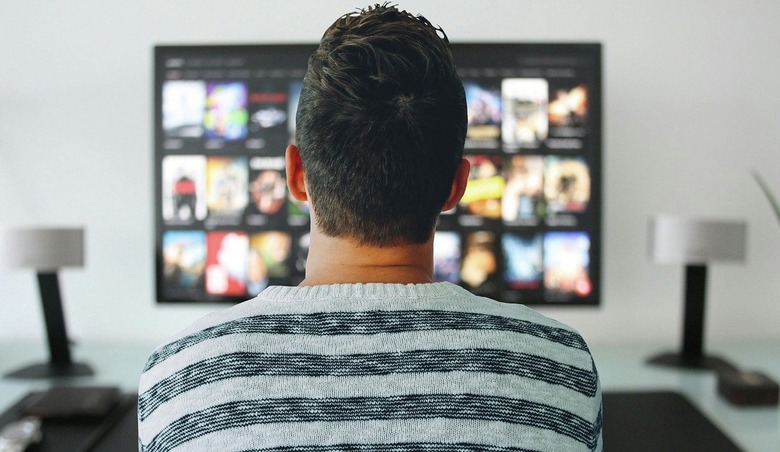YouTube TV's 'Value' Is Why People Ditched Cable In The First Place
Remember several years ago, when streaming services like Netflix were really hitting their stride and internet TV services were starting to ramp up, how optimistic we all were about the internet being a force for change with the cable industry? "Surely once they see people flocking to these internet providers and canceling their cable subscriptions, the industry will change for the better," some of us thought back then. Remember those more encouraging days?
It turns out that those of us who adopted an optimistic mentality toward the cable industry, and indeed, the pay-TV industry as a whole, were fools.
Sure, it's easy to look back and say that of course no real positive change has happened. It's easy to look at production companies pulling their content from services like Netflix and Amazon so they can make their own streaming platforms and point out that this was the logical outcome of people turning to the internet en masse to get their entertainment.
But it's hard to blame those people who thought that consumers voting with their wallet would prompt change for the better within the cable and television industries. Still, with seemingly every network or media company launching their own streaming service and internet TV service looking more and more like cable with each passing day, it's safe to say that we were, indeed, fools.

Perhaps the best illustration of this is YouTube TV. As we closed out June, YouTube TV made a whopper of an announcement, revealing that it was raising its monthly cost to $64.99. That was a $15 price hike, and now, YouTube TV costs nearly twice what it did when it launched in February 2017 at $34.99 per month. I don't care how much money you have to spend on entertainment each month, that's a tough pill to swallow.
YouTube seems to know it too, because it spent most of the blog post announcing this price hike justifying it, either by talking about all of the features it's added in recent months or listing off the networks and channels that have entered the YouTube TV fold. It ended off its blog post by referencing the "value" that YouTube TV offers to its customers:
We don't take these decisions lightly, and realize how hard this is for our members. That said, this new price reflects the rising cost of content and we also believe it reflects the complete value of YouTube TV, from our breadth of content to the features that are changing how we watch live TV. YouTube TV is the only streaming service that includes a DVR with unlimited storage space, plus 6 accounts per household each with its own unique recommendations, and 3 concurrent streams. It's all included in the base cost of YouTube TV, with no contract and no hidden fees.
I've been subscribed to YouTube TV in the past, and it is a good service. It works as well as Sling TV at least, which is the only other internet TV service I've subscribed to. But this argument that YouTube TV provides value at least in part through a bloated channel lineup is as old as the cable industry itself, and that's precisely the kind of "value" cord cutters were trying to get away from when they ditched their cable boxes and turned to the internet.
In my area, there are 88 channels available through YouTube TV. It's a far cry from the multi-hundred channel lineups that a cable subscription gets you, but it's also a far cry from the a la carte TV that people used to dream about (and have been requesting for years) when they thought the shift to the internet would change the television landscape.

It's clear at this point that we're not getting that a la carte TV experience, though Sling TV does get us part way there by offering add-on channel bundles to the base plans it sell for $30 a month each. Even then, Sling has the potential to get pricey really fast depending on what you want to watch because you're spending at least $30 a month on a base package.
I think for most people, the so-called value in these internet TV bundles comes from sports networks. I'm also assuming that sports networks are at least partially responsible for the price hikes we've seen at YouTube, Sling, and even Hulu Live TV. The only sport I watch is hockey, and if I don't want to subscribe to cable during hockey season, my only other choice is to sign up for one of these internet TV providers.
I've been longing for the day when the NHL will let me pay it a subscription fee to watch any game I want, and while it does offer a subscription in the form of NHL TV, I also have to contend with blackouts that mean I can't stream my home team's games – the very games I want to watch. It really feels like sports broadcasting is a relic of a time long past at this point, but cable companies, internet TV providers, and professional leagues don't seem to want to change the way broadcasting rights are handled.

I don't know what the solution is to this problem of rising costs among internet TV providers. I think it's a shame that they've all basically become "cable light" instead of actually changing the game and pushing more innovation aside from cloud DVR and month-to-month billing, and I don't see how prices stay level from here – not when YouTube TV just had three years of rather aggressive price increases.
I do know, however, that the convenience of streaming is quickly being outpaced by the cost and frustration of it. When that happens, and consumers decide that streaming TV or subscribing to multiple streaming services is far more trouble than it's worth, we know what's next: They're going to go back to piracy and we'll be back where we started.
Consumers have made it clear that when you make content – whether that's movies or TV shows or video games – easily accessible at a fair price, they will pay for that content. On the other side of that coin, it is very easy to pirate pretty much anything, whether you want every episode of Frasier stored locally or you want to watch professional or college sports without spending a bunch of money to do so.
This is something a lot of consumers know, so broadcast companies and service providers might want to tread carefully when it comes to fragmenting the streaming landscape or implementing big price hikes. Otherwise, it might not be long before they're on the receiving end of a resurgence in piracy.
